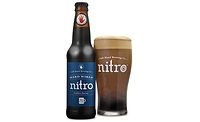Channel Strategies
On-premise looks to move beyond recovery and into growth
Operators embrace digital solutions, to-go packages beyond pandemic

Photo by ELEVATE from Pexels/courtesy of Canva
In the 2009 song “I Gotta Feeling,” the Black Eyed Peas sing “Tonight’s the night, let’s live it up, I got my money, let’s spend it up.” Consumers are taking these words to heart by frequenting on-premise outlets following limited visitation throughout the past two-plus years due to the pandemic.
In March, Chicago-based Provi, a B2B ecommerce marketplace for the beverage alcohol industry, released its “2021 Year in Review” report. In the report, the company found that for the 12 months ending December 2021, the on-premise channel saw year-over-year sales increase 3.5 times.
“With the exception of a few recent months, consumers enjoyed a strong return to their favorite bars and restaurants throughout 2021,” Provi’s report states. “Even amid recent uncertainties, our data shows consumers demonstrated an increasing level of comfort in getting back to the on-premise.”

Photo by Evonics from Pexels/courtesy of Canva
CGA Strategy, Chicago and Manchester, United Kingdom, found in its most recent “On Premise Impact Report” that total U.S. sales velocity through Feb. 26 was up 37% compared with the previous year and up 20% when compared with 2020, showing that the channel is exceeding pre-pandemic levels.
Washington, D.C.-based Wine & Spirits Wholesalers of America’s (WSWA’s) SipSource also recently released its latest set of Channel Shifting Index (CSI) data for on-premise. The combined wine and spirits CSI for on-premise reached 82.3 for the 12 months ending January 2022, a slow but steady improvement versus the 80.7 CSI for the 12 months ending December 2021, the association says.
“The on-premise CSI continues to make small gains in most months since its low point back in the 12 months to February 2021 (CSI of 45), and those small gains have added up over time,” said Danny Brager, SipSource analyst, in a statement.
With a CSI of 77, SipSource notes that wine’s on-premise recovery still is behind spirits, which has a CSI of 85.
“The closure of many on-premise locations coupled with reduced hours for others, and the Omicron-variant surge in January all contributed to these CSI numbers still remaining well below the pre-COVID share, albeit steadily improving,” Brager stated. “As COVID cases fall dramatically and further restrictions and/or guidelines are eliminated, and as we approach warmer months with more outdoor dining possibilities, I expect the on-premise to make further improvements in its share, and adjoining CSI.”
CGA’s insights show that across all beverage alcohol ― beer, wine and spirits ― there has been growth within the on-premise channel in comparison to pre-pandemic levels. For the third quarter of 2021 vs. the same quarter of 2020, OPM data had beer up 120%, wine increased 134% and spirits growing 132%.
“One key element of the on-premise that consumers are valuing more highly than they did pre-pandemic, is that of bartenders and hospitality staff. The value consumers place on bartender or server knowledge has increased by 42% from 2019 to 2021, with 56% of consumers taking recommendations from staff on what to drink when they visit the on-premise.”
- - Andrew Hummel, CGA Client Solutions Manager for Americas
“Spirits have seen a boost as consumers have been making up for lost time as they missed the perfectly crafted cocktail experience in the on-premise, after trying to recreate their favorites at home,” says Andrew Hummel, CGA Client Solutions Manager for Americas. “Vodka and whiskey still top the list when it comes to the spirits category, but subcategories such as tequila are on the rise and has grown significantly ― with the Margarita being instrumental to this growth.
On-premise also is seeing the benefits of hard seltzers. CGA data shows that hard seltzer levels are not the same as when it first swept the on-premise channel, but in the third quarter of 2021, it still generated 119% growth.
“With new brands continuing to join the category every week, the question remains if hard seltzer’s on-premise performance will mirror that of the off-premise in terms of saturation,” says Matthew Crompton, CGA Regional Director of North America. “Given the stocking space available in most on-premise outlets it is doubtful, but there is still potential for further innovation. With flavor and brand innovation continuing onwards, the makeup of the category will likely continue to evolve.”
Adapting for today’s on-premise consumers
Although consumers are eager to embrace on-premise outlets again, some of the solutions that emerged during the pandemic have found a home in the channel.
“Digital-based discovery and ordering of drinks is now embedded in consumer’s habits, however, there’s room for improvement within this medium to increase engagement and drive sales,” Crompton says. “In CGA’s consumer research, when U.S. consumers were asked how they engaged with both digital and physical menus, only 39% of respondents said that they look at the whole digital menu as opposed to 63% for physical menus.”

Photo by Magda Ehlers from Pexels/courtesy of Canva
Another prominent change was the quick response of offering consumers to-go cocktail kits or packages with various beverage alcohol options.
“An important implication of the proliferation of to-go cocktails is how operators logistically approach their beverage programs,” Hummel says. “A focus on simplicity and consistency promoted the adoption of pre-batched and draft cocktails. Whether intentional or not, as restrictions eased and operators faced staffing constraints, pre-batched cocktails mitigated service bottlenecks.”
Although these to-go kits are assisting on-premise operators as they face staff shortages, CGA’s experts note that the experience cannot be replicated at home. As such, consumers are showing a deeper appreciation for bartenders and other staff members.
“One key element of the on-premise that consumers are valuing more highly than they did pre-pandemic, is that of bartenders and hospitality staff,” Hummel says. “The value consumers place on bartender or server knowledge has increased by 42% from 2019 to 2021, with 56% of consumers taking recommendations from staff on what to drink when they visit the on-premise.”
CGA data shows that this appreciation is helping on-premise occasions show their best sales in years, particularly around holidays. For example, total U.S. on-premise sales on Valentine’s Day this year (a Monday) was up 139% compared with the previous Monday, CGA data showed.
These performances suggest that U.S. on-premise outlets are moving past the recovery stage and into growth, CGA notes. However, the market research firm predicts that pre-pandemic norms will not completely return as some aspects have shifted.
“A macro trend we continue to monitor is a shift toward earlier dayparts and away from weekday drinks consumption,” Hummel says. “This may be attributed to the new normality of working from home. Consumers are now visiting the on-premise channel for drinks more often for brunch and lunch and less often from early evening onward, versus 2019 visitation data. It follows that the weekend has gained value share of total spend from weekdays. It’s important for operators to cater to these new occasions and reassess [limited-time-offerings] and drinks assortment to engage with changed
Looking for a reprint of this article?
From high-res PDFs to custom plaques, order your copy today!






